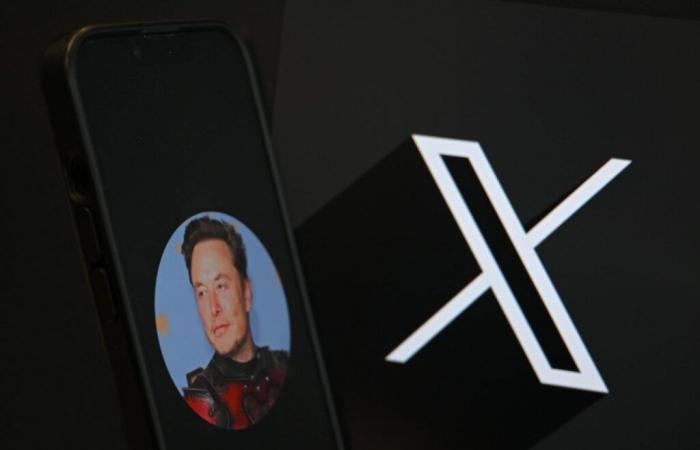Seen as an El Dorado by the media when it was called Twitter, Elon Musk's social network “information nightmare”: three major newspapers have just left him, accusing him of spreading disinformation.
The British daily The Guardian announced on Wednesday that it would no longer publish content on this “toxic media platform”. It was followed on Thursday by the Spanish newspaper La Vanguardia then on Friday by the Swedish Dagens Nyheter.
Prelude, perhaps, to other departures? The question had already arisen in 2022, when Musk bought Twitter. He renamed it X and drastically reduced moderation, in the name of freedom of expression.
After the election of Donald Trump to the American presidency, with the active support of Musk, “we can expect other press publishers to leave X”Stephen Barnard, a researcher at the American Butler University, told AFP.
More “their number will likely depend on the actions of X, Musk and the Trump administration towards the media”he nuances. “If they are as hostile towards them as they have been in the past, it will likely lead to more departures”.
A claimed opponent of the media, himself accused of promoting disinformation, Musk was appointed by Trump to head a new commission responsible for cutting public spending.
Dependence
Elon Musk supports Donald Trump during the American presidential campaign, October 27, 2024 at Madison Square Garden in New York / ANGELA WEISS / AFP/Archives
To justify his departure from X, the Guardian estimated that “the advantages” to be there were now surpassed “by the disadvantages”notably the omnipresence of “far-right conspiracy theories and racism”.
Conversely, when it took off in 2008-2009, Twitter was seen by the media as the place where you absolutely had to be, to have direct contact with readers and sources of information, experts and politicians alike.
The media “found and expanded an audience, built brands, developed new journalistic practices, formed a community”which in return “significantly strengthened the influence of Twitter”lists Mr. Barnard.
To the point of locking oneself into a dependency that the media pays for today? “I think so, yes”responds to AFP Mathew Ingram, former digital media specialist at the American magazine Columbia Journalism Review.
“Many news publishers have abandoned any form of interaction with their readers by outsourcing it to social networks like Twitter, and from this point of view, they are reaping what they sow”he elaborates.
After the initial fever, and even before the advent of Musk, critical voices were raised. They pointed out the mechanism of the network, which encourages controversies and instant indignation, and the distorted reflection it offers of society, since CSP+ and activists are over-represented there.
What alternatives?
It remains to be seen whether leaving X is detrimental to newspapers, already hit by a serious economic crisis.
“We will probably lose subscriptions, because some readers subscribe after seeing a news story on the social network”said Jordi Juan, the director of La Vanguardia, to AFP.
A hypothesis tempered by Mr. Barnard: “This is unlikely to have a significant effect on media revenues as X generates relatively little traffic to news sites compared to other platforms”.
In October 2023, six months after American public radio NPR left Twitter, a report from the Nieman Foundation for Journalism assessed the effects of this departure “negligible” in terms of traffic.
Another question: leave X, but to go where?
Some Internet users are advocating a move to another American social network, Bluesky. It announced on Friday that it had registered one million new users in one day.
But its 16 million registered users still weigh little compared to X's active users, estimated at several hundred million.
“There are no strict alternatives to what X is proposing today. But we may have to invent them”Vincent Berthier, head of the technology department at RSF (Reporters Without Borders), told AFP.
For the French press defense NGO, the fact that newspapers are leaving “the symptom of the failure of democracies to regulate platforms” internet, whatever they may be.
“Musk is the radical face of this informational nightmare that exists on the platforms, but the problem is much more global”insists Mr. Berthier.






